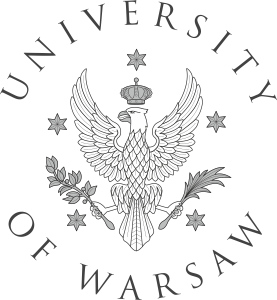Seminar CeNT 7.05.2021
30 kwietnia 2021The Centre of New Technologies invites to a webinar by
Prof. Wojciech Grochala,
Centre of New Technologies, University of Warsaw
Title: Electric current without paying a penny for your energy transmission bill.
Date: 7th May 2021 (Friday)
Time: 12:00 pm (Central European Summer Time)
Host: prof. Joanna Trylska
Virtual seminar: https://us02web.zoom.us/j/81736319167
Meeting ID: 817 3631 9167
To subscribe to receive announcements about CeNT UW seminars or to unsubscribe please click here
CeNT-UW-Webinars-instruction-for-attendees
Abstract:
Metals exhibit resistance to transfer of electric current and heat is produced in process. On the other hand, superconductors have null resistance to direct current which leads to a number of important applications in science and technology. Moreover, superconductors exhibit so called perfect diamagnetism, an exotic phenomenon which may also be utilized in a daily life. Here, our own involvement in research on novel superconductors will be illustrated, particularly fluorides and hydrides. The talk will be concluded with the description of a new nanotechnological setup which enables doping and thus metallization of a huge range of elements and chemical compounds, some of which may become superconducting at room temperature.
New English-language study programmes at UW

The University of Warsaw offers over 100 study programmes in humanities, social, exact and natural sciences, as well as interdisciplinary ones. There are also degree programmes entirely conducted in English. This year, prospective students may choose from two new study programmes in English: Machine Learning, and Religions of Asia and Africa: Buddhism, Islam and Others.
Admissions for the first-cycle study programmes (undergraduate) and second-cycle study programmes (graduate) at the University of Warsaw will begin on 7th June. In 2021, candidates for studies can apply for new English-language study programmes: Machine Learning, and Religions of Asia and Africa: Buddhism, Islam and Others.
- Machine Learning – an English-language graduate study programme at the Faculty of Mathematics, Informatics and Mechanics. Students will learn the basics of machine learning, the latest discoveries in maths and computer science, with particular emphasis on digital image processing and natural language processing. The programme includes a compulsory internship and a research project. Graduates of this field of study will be prepared to work as specialists in Data Science.
- Religions of Asia and Africa: Buddhism, Islam and Others – an English-language graduate study programme at the Faculty of Oriental Studies. Students can learn about the most important Asian religions of the East. The emphasis is put on Buddhism and Islam – the history of their dissemination, the most important figures, fractions, religious literature, art and symbolism, terminology, contemporary problems and the spread of these religions in the West. To understand better Asian religions, students will learn one of the languages – Tibetan or Arabic. The programme also includes workshops conducted in cooperation with followers of Buddhism and Islam, aimed at the practical implementation of knowledge.
Undergraduate programmes in English:
- American Studies >>
- Archaeology >>
- English Studies >>
- European Politics and Economics >>
- Finance, International Investment and Accounting >>
- International Relations >>
- International Studies in Philosophy >>
- Political Science >>
Graduate programmes in English:
- American Studies >>
- Archaeology >>
- Chemistry >>
- Cognitive Science >>
- Data Science and Business Analytics >>
- English Studies >>
- Graduate Programme in Teaching English to Young Learners >>
- Humanitarian Action >>
- International Business Program >>
- International Economics >>
- International Relations >>
- Machine Learning >>
- Master in Food Systems >>
- Oriental Studies – Mongolian and Tibetan Studies >>
- Physics >>
- Political Science >>
- Quantitative Finance >>
- Religions of Asia and Africa: Buddhism, Islam and Others >>
- Sustainable Development >>
Long cycle – uniform Master’s studies
More information on the admissions process is available on the website of the UW Admissions Office.
Admissions Office
rekrutacja.uw.edu.pl/en
+48 22 55 24 043, +48 22 55 24 075, +48 22 55 24 048
admission(at)uw.edu.pl
Terms of studying
Admissions step by step
Welcome Point
central information service for international students
welcome.uw.edu.pl
(+48) 22 55 24 080, tel. (+48) 22 55 24 103
welcome(at)uw.edu.pl
Office for Student Affairs
enbss.uw.edu.pl
+48 22 55 24 022, +48 22 55 24 077, +48 22 55 24 083, +48 22 55 20 424
bsstud(at)adm.uw.edu.pl
Online Recruitment
www.irk.oferta.uw.edu.pl/en-gb
Source: www.en.uw.edu.pl
Testing for COVID-19 until 30th September
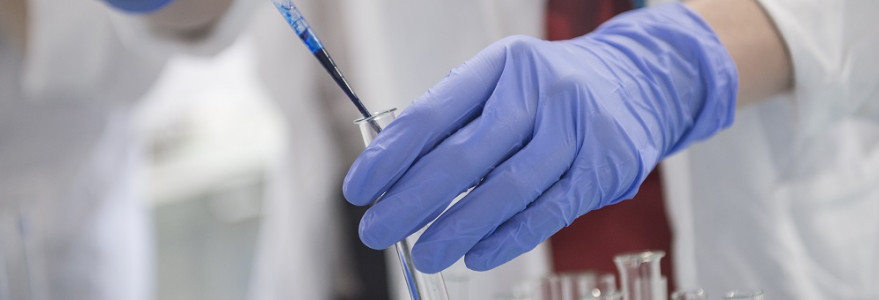
Employees and doctoral candidates of the University of Warsaw can book free of charge COVID-19 RT-PCR tests until the end of September. UW employees and doctoral candidates can book a test, also those who got tested last year in the autumn.
Employees and doctoral candidates have an opportunity to undergo COVID-19 RT-PCR tests that detect active SARS-COV-2 infection.
Testing takes place on-site (on the campus in Ochota) following the registration.
SARS-CoV-2 RT-PCR detects viral RNA. Diagnostic tests use a mucus sample from the nose or throat. Medical personnel take a swab which will get analysed by Warsaw Genomics.
Before getting tested:
At least half an hour before taking a swab for SARS-CoV-2 virus, one should not:
- drink,
- eat,
- smoke cigarettes,
- take medications,
- brush their teeth,
- rinse mouth and nose,
- chew gum.
Testing period: COVID-19 swab collection will continue until 30th September 2021.
How to book a test?
Step 1: Download a discount code
A discount code, which entitles employees and doctoral candidates of the University of Warsaw to get tested free of charge, can be downloaded from covid.uw.edu.pl.
Step 2: Register
After receiving the code, register at https://warsawgenomics.pl/badaniadlauw and arrange an appointment via the form at warsaw-genomics.reservio.com, choosing a specific date and time.
Step 3: Undergo a test
Taking a swab will take place on the campus in Ochota, in the building of the Sports and Recreation Centre, in a separate room with a separate entrance. Tests are organised and coordinated by the University of Warsaw. Swabs will be collected by medical professionals.
Warsaw Genomics team will offer tests from Monday to Friday: 8 am – 6 pm.
Please note: A person should come to the swab collection facility wearing a protective mask on, with their ID and test order number, which will be generated during registration.
Step 4: Get your results
The test results will be available to patients at https://wyniki.warsawgenomics.pl/. It can take up to three business days until the results will be given. One should enter their order number (from the e-mail confirming acceptance of the SARS-CoV-2 test) and their PESEL number (or their ID number if there is no PESEL number). It will be possible to download the signed and authorized test result.
Discount on RT-PCR test for family members of UW employees and doctoral candidates
UW employee and doctoral candidates who will get tested will receive a discount (PLN 89) from Warsaw Genomics on RT-PCR tests to be used by their family member. The cost of the test for a family member amounts PLN 350. Up to four people from the family can you the discount. Link to book a test: https://badamygeny.pl/zamow.
How to get a discount code for family members?
The discount code will be sent by Warsaw Genomics by e-mail, confirming registration for the free RT-PCR test for active SARS-CoV-2 coronavirus infection.
More information (in Polish) >>
Source: www.en.uw.edu.pl
Online UW Open Day 2021: Coverage
27 kwietnia 2021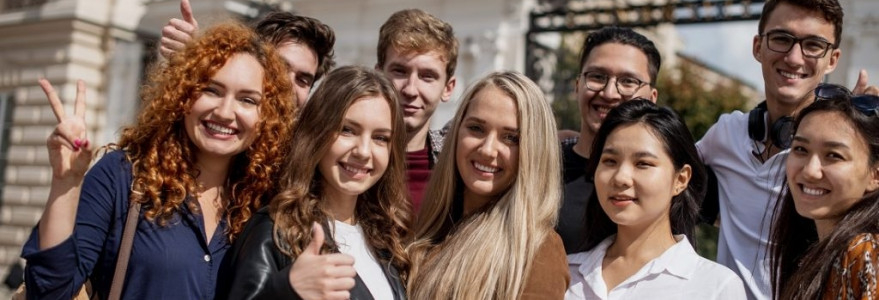
Over 5 800 visitors, 70 stands prepared by faculties and units of the University of Warsaw, and more than 5 000 chat messages — these are the statistics of this year’s UW Online Open Day. Candidates for studies could learn about the university’s educational offer, admission rules and talk to students and lecturers.
On 24th April, from 10:00 a.m. to 4:00 p.m., the Open Day at the University of Warsaw took place on the dzienotwarty.uw.edu.pl platform. The event was opened by Prof. Sławomir Żółtek, the University of Warsaw Vice-Rector for Students and Quality of Teaching.
The slogan of this year’s Open Day was ‘We create the future’. I am sure that the teaching offer of the University of Warsaw will help you take care of your future. Our University has been recognized as the best Polish university for many years. We truly do know how to create conditions for the development of ambitious and talented young people and how to educate them to look into the future,” said Prof. Sławomir Żółtek, the University of Warsaw Vice-Rector for Students and Quality of Teaching.
Virtual stands
Candidates for studies could virtually visit stands prepared by employees of faculties and units, student organisations, and administration offices. According to the platform’s statistics, the most popular stands were the Admissions Office (904 visits), the Faculty of Law and Administration (473), Welcome Point (452), the Faculty of Psychology (411), and the Faculty of Modern Languages (405).
During Open Day, prospective students had access to recruitment materials, they could chat with representatives of a given unit, lecturers, and students as well as take part in online meetings (e.g., on Zoom or Google Meet platforms).
At the virtual meeting, participants could learn the details of the activities of the University of Warsaw Choir, Folk Song and Dance Ensemble of University of Warsaw “Warszawianka”, and the 4EU+ Alliance of which the UW is a member.
Admission for international candidates
Welcome Point, an information point for international students at UW, had the opportunity to present all the necessary information that one may need during recruitment or stay in Poland as a student.
Candidates from abroad can find more information about enrollment on the UW Admissions Office website >>

Presentation of the admission process for international candidates (pdf) >>
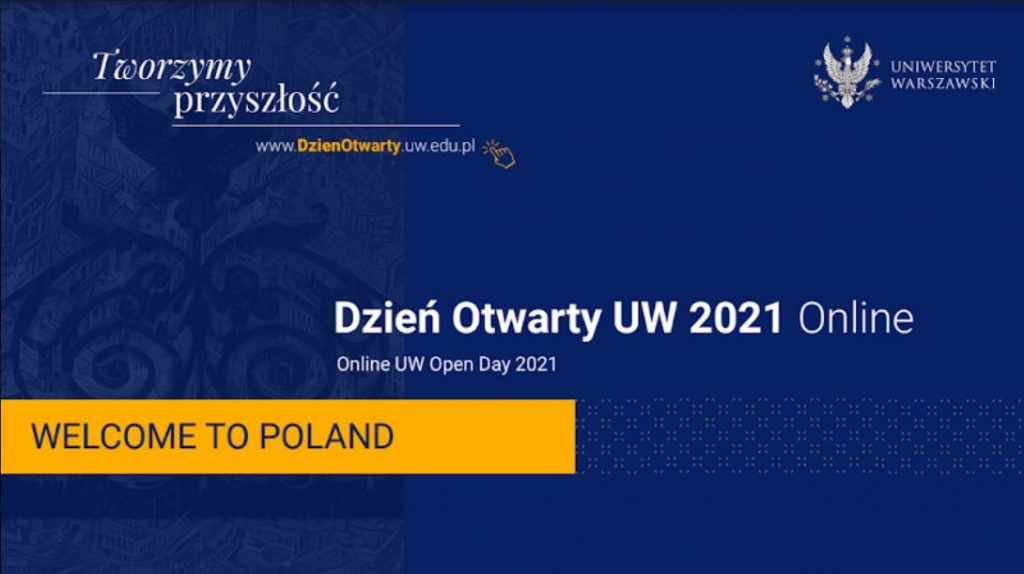
Presentation Welcome to Poland (pdf) >>
Admissions Office
rekrutacja.uw.edu.pl/en
admission(at)uw.edu.pl
Terms of studying in Poland
Admissions step by step
Welcome Point
welcome.uw.edu.pl
welcome(at)uw.edu.pl
Online Recruitment
http://www.irk.oferta.uw.edu.pl/en-gb
Source: www.en.uw.edu.pl
Happy Birthday, Wladek!
23 kwietnia 2021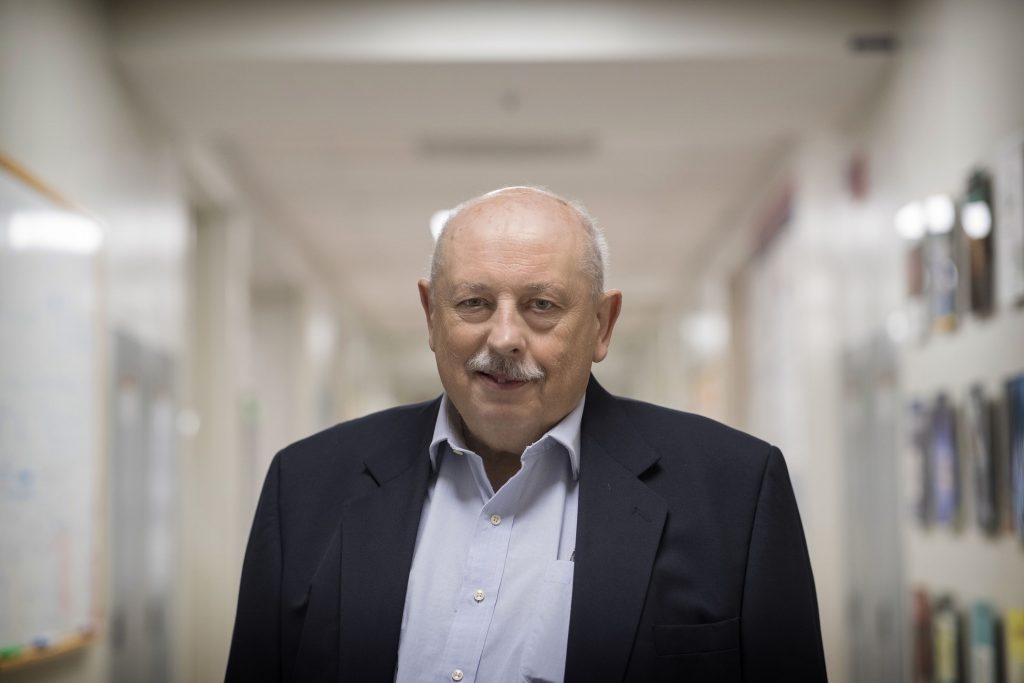
Professor Wladek Minor
Professor Wladek Minor, affiliated professor at our Department, will celebrate his 75th birthday in May 2021. He was educated at our University, obtaining his M.Sc. degree in 1969 and his Ph.D. in 1977, both from the Department of Physics of the University of Warsaw. His scientific interests during that period were focused on solid state physics as he initially worked in the group of Professor Bronisław Buras. His “great American Dream” started in 1985, when he arrived in West Lafayette, Indiana, to take up a postdoctoral position at Physics Department of Purdue University. During his ten years there, Prof. Minor successfully collaborated with his younger colleague from Warsaw, Zbyszek Otwinowski (currently professor of biochemistry at the University of Texas Southwestern Medical Center, Dallas). At Purdue, prof. Minor started his biophysical and crystallographic interests working in famous group of prof. Martin Rossmann.
Since 1995, prof. Minor has been working at the University of Virginia. In the same year he and prof. Otwinowski founded HKL Research, Inc., which provides HKL program suites for protein crystallography – an excellent example of successful commercialization. Using this software many thousands of crystals structures of proteins and their complexes have been solved and refined. For a long time HKL was the most popular software used in structural biology.
Prof. Minor and a group of other Polish structural biologists and crystallographers ( for example Profs.: A. Wlodawer, Z. Dauter, A. Joachimiak, Z. Otwinowski, M. Jaskólski, Z. Derewenda, etc) have created an extremally successful informal Polish research community in the USA, which has commonly been termed even by the Nobel Prize winners as “Polish crystallographic mafia”. This is a great example of collaboration and great scientific success of Polish researchers in the most competitive American conditions.
For many years now, Minor’s laboratory has been a meeting place of students and postdocs from Poland who worked at the University of Virginia. Out of almost 115 his alumni, 53 came from Polish research centers and 14 of them were affiliated with the University of Warsaw. Not fewer than 9 of them were related to our Department of Chemistry and 6 are currently employed at our Department. He collaborates with the groups of Prof. Koliński and Prof. Woźniak and is also a formal mentor in the Core Facility FNP project of Prof. Woźniak visiting our Department regularly within the last years with a small break for the pandemic time.
Wladek and his wife Iwona are wonderful hosts. Their house is not only a meeting place for the Polish and scientific communities but also quite often (long before Airbnb was established) a temporary shelter for people who have just arrived to Charlottesville to work at the University of Virginia. Hence, it is not uncommon for Professor Minor to serve as a “taxi service,” helping newcomers to find a place to live and get accustomed the city.
Professor Minor is one of the most successful Polish scientist. His papers have earned ca. 55000 citations (on average between 2000-3000 per year) and his H-index is equal to 57. He publishes a dozen of significant papers per year and still works on many important projects. His successful career and great achievements are a true inspiration to others, especially for scientists of the younger generation, a source of pride for us and all his coworkers, and also for our Department and for the whole Polish scientific community.
Happy Birthday Wladek. We all wish you well and I hope all you birthday wishes come true!
Prof. Andrzej Kudelski – the Dean of the Faculty
Prof. Andrzej Koliński
Prof. Krzysztof Woźniak
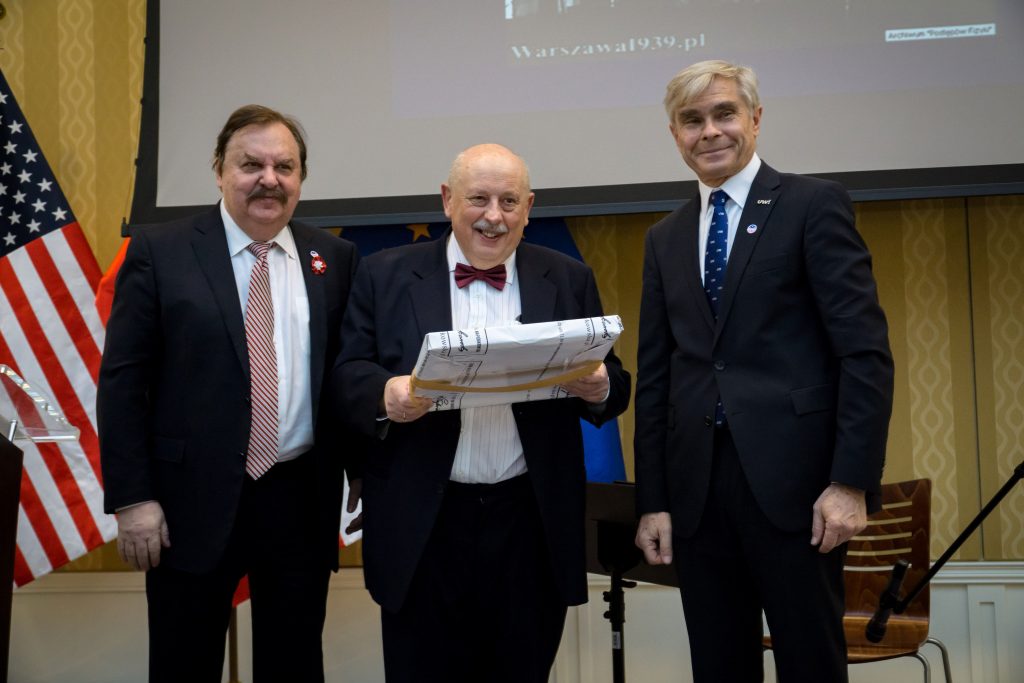
Prof. Minor is the 2018 Laurate of the University of Warsaw and the American Friends of the University of Warsaw Award. The annual UW-AFUW award is given to graduates of the University of Warsaw actively working for the development of Polish science in the USA.
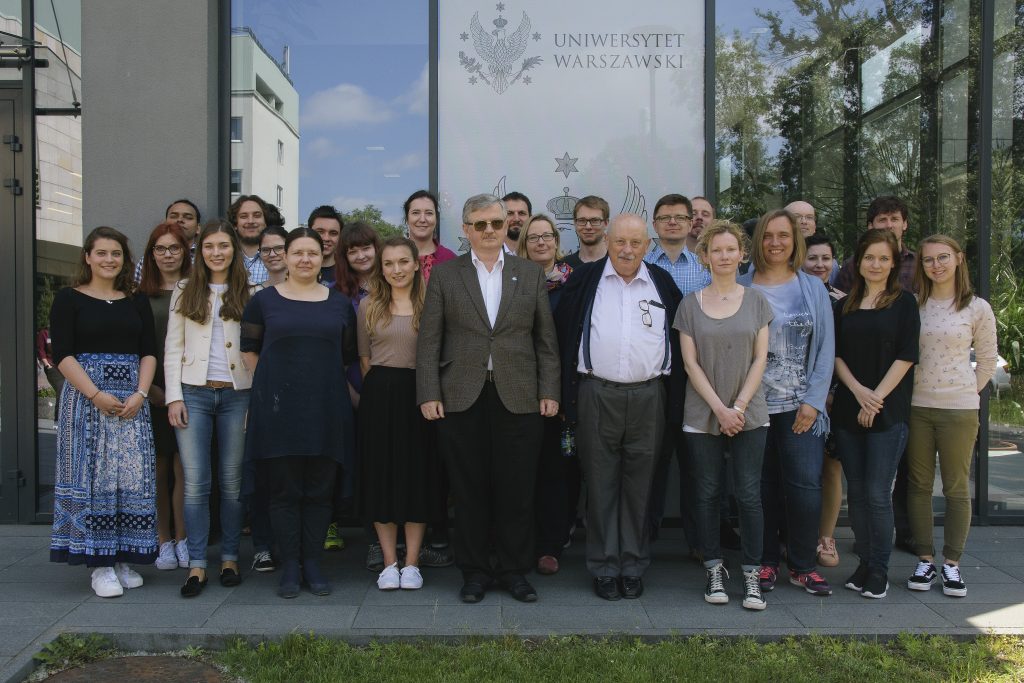
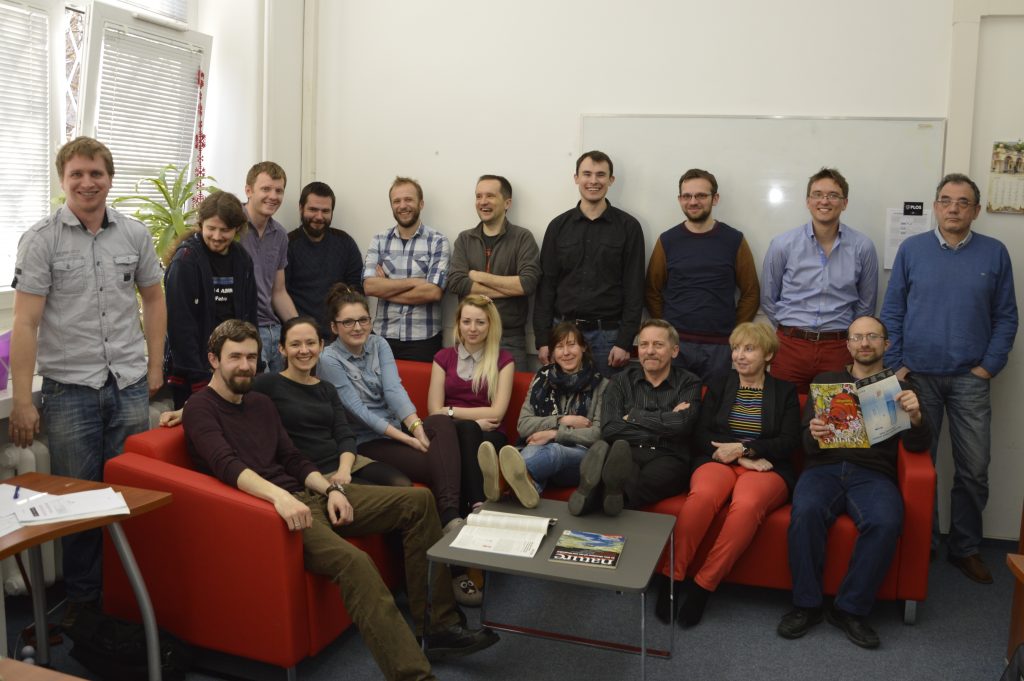
PS. We thank Dan Addison (UVA Communications) for sharing photo of Prof. Minor with us and Joanna Macnar for her help in preparation of this information.
Photo contest for 4EU+ students and doctoral candidates
22 kwietnia 2021
Students and doctoral candidates of 4EU+ member universities, including the University of Warsaw, are invited to participate in a first-ever 4EU+ Student Photo Contest on Instagram. The key theme of the contest is Europeanness. The deadline for entry is 3rd May.
Europeanness is an umbrella theme for one of the four programmes of 4EU+ Alliance, Flagship 2: “Europe in a changing world: Understanding and engaging societies, economies, cultures and languages”. More information >>
4EU+ students and doctoral candidates can express what Europeanness and being European mean to them by posting a picture on Instagram with a short description (maximum three sentences).
The following criteria will be taken into consideration:
- Adherence to the contest’s theme,
- The uniqueness of the concept and creative approach to the theme,
- The overall quality of the picture,
- Clarity of expression in the picture description (caption) and the overall message behind the photo.
The submitted works will be first assessed by a jury composed of five 4EU+ representatives from the Management Committee, Flagship 2 Programme Committee, Student Committee, and the 4EU+ Communications Working Group. The jury will select three finalists. In the second stage of the contest, the public will decide who will receive the first, second or third place. Winners will be offered free participation in a language course (Czech, French, German, Italian or Polish) at one of the 4EU+ member universities.
The exact date of public voting will be announced on the 4EU+ website and the 4EU+ Instagram account on 6th May.
The contest closes on 3rd May, 23:59.
How to take part in the Europeanness Photo Contest on Instagram:
- Follow our 4EU+ account on Instagram (@4euplus_alliance).
- Make sure your Instagram account is a public profile. If you do not want to use your private Instagram account, you can create a separate account just for the sake of the contest.
- Post a picture addressing the theme of Europeanness/being European on Instagram. Photos depicting your art: graphic, illustration, drawing or a painting can also be submitted, as long as you are the author and own the copyright to the image used.
- In the caption: Write in max. 3 sentences what Europeanness means to you; Don’t forget to tag @4EUplusAlliance and use the hashtags #4EUplusAlliance, #Flagship2 and #Europeanness
- The posted picture must not have any inappropriate content, language or imagery (no violence, pornographic images, personal or political attacks on people or organisations, etc.).
Deailed information on the contest is available on the 4EU+ website >>

4EU+ website: https://4euplus.eu
4EU+ Twitter account: twitter.com/4EUplusAlliance
4EU+ Facebooku account: www.facebook.com/4EUplusAlliance
4EU+ Instagram account: @4euplus_alliance

Source: www.en.uw.edu.pl
Seminar CeNT 29.04.2021
21 kwietnia 2021The Centre of New Technologies invites to a webinar by
Prof. Alexander Wlodawer,
Center for Structural Biology, National Cancer Institute, Frederick, USA
Title: One thousand structures of SARS-CoV-2 proteins, or how the Polish Crystallographic Mafia joined the fight against covid-19
Date: 29th April 2021 (Thursday!)
Time: 15:00 pm (Central European Summer Time)
Host: prof. Joanna Trylska
Virtual seminar: https://us02web.zoom.us/j/83926960355
Meeting ID: 839 2696 0355
To subscribe to receive announcements about CeNT UW seminars or to unsubscribe please click here
CeNT-UW-Webinars-instruction-for-attendees
Abstract:
The response of the scientific community to the COVID-19 pandemic has been remarkable, with over 1000 structures related to SARS-CoV-2 submitted to the Protein Data Bank by mid-April 2021. With structural data obtained very rapidly by many groups using different techniques and varied experimental approaches, such efforts may lead to inevitable mistakes, errors, and interpretational problems. To help biomedical researchers, who may not be experts in structural biology, navigate through and absorb the flood of structural information, we have created an online resource, covid19.bioreproducibility.org, that aggregates expert-validated information about SARS-CoV-2-related macromolecular models. A number of protein complexes with inhibitors, which are most vital for drug design, were found to pose significant problems. Our critical analysis of a large number of protein structures that are potential or actual targets for drug design, all determined within less than a year using modern experimental tools, is important not only in a current medical emergency but should be also useful as a paradigm study for future projects of high interest to biomedical community.
Education in the 2021/2022 academic year
19 kwietnia 2021
The authorities of the University of Warsaw have issued a notice regarding education in the 2021/2022 academic year.
Following the consultations with heads of units at the University of Warsaw and taking into account students and doctoral candidates’ opinion, the UW authorities have decided to start preparations to resume teaching and learning on-site in the coming academic year. It is recommended to organise socialising meetings for freshers at the UW premises already in September. The implementation of this plan, however, will depend on a pandemic situation and future legal provisions. It mainly refers to the regulations related to fighting the pandemic and shaping the higher education system, which the University is ready to support.
Representatives of given units pointed out that it is difficult to achieve some of the educational results remotely. When it comes to the master and apprentice relationship, the remote mode is not the greatest ally. The authorities do not lose sight of the psychological difficulties resulting from online teaching and learning. In this mode, it is challenging to pursue academic life, being essential for the university, foster student and doctoral candidate self-organisation or scientific activities. The results of surveys carried out at UW confirmed the eagerness of the academic community to return to getting education inside the walls of the university.
It is worth keeping trusted didactic innovations brought about by distance learning. The UW authorities, aware of those last year’s achievements, will strive to use and develop them. Asynchronous lectures belong to the solutions widely approved by the UW community.
As a consequence, following the internal voice of the university, the UW authorities have decided that education in the next academic year at the University of Warsaw will, as a matter of principle, take place on-site unless it will be necessary to introduce exceptions resulting from the justified needs and capabilities of individual teaching units.
Source: www.en.uw.edu.pl
Call for candiidates-position of Adjunct – IDUB UW programme (1)
17 kwietnia 2021The Rector of the University of Warsaw has opened a call for applicants for the position of Adjunct, as part of the “Excellence Initiative – Research University” programme. The “Excellence Initiative – Research University” is a programme of the Ministry of Education and Science, which enables the University of Warsaw to raise the level of quality of scientific activity, quality of education and, consequently, the international recognition of the University. Closing date for applications: 19.05.2021. More information >> pdf
Call for candiidates-position of Adjunct – IDUB UW programme (2)
The Rector of the University of Warsaw has opened a call for applicants for the position of Adjunct, as part of the “Excellence Initiative – Research University” programme. The “Excellence Initiative – Research University” is a programme of the Ministry of Education and Science, which enables the University of Warsaw to raise the level of quality of scientific activity, quality of education and, consequently, the international recognition of the University. Closing date for applications: 19.05.2021. More information >> pdf

